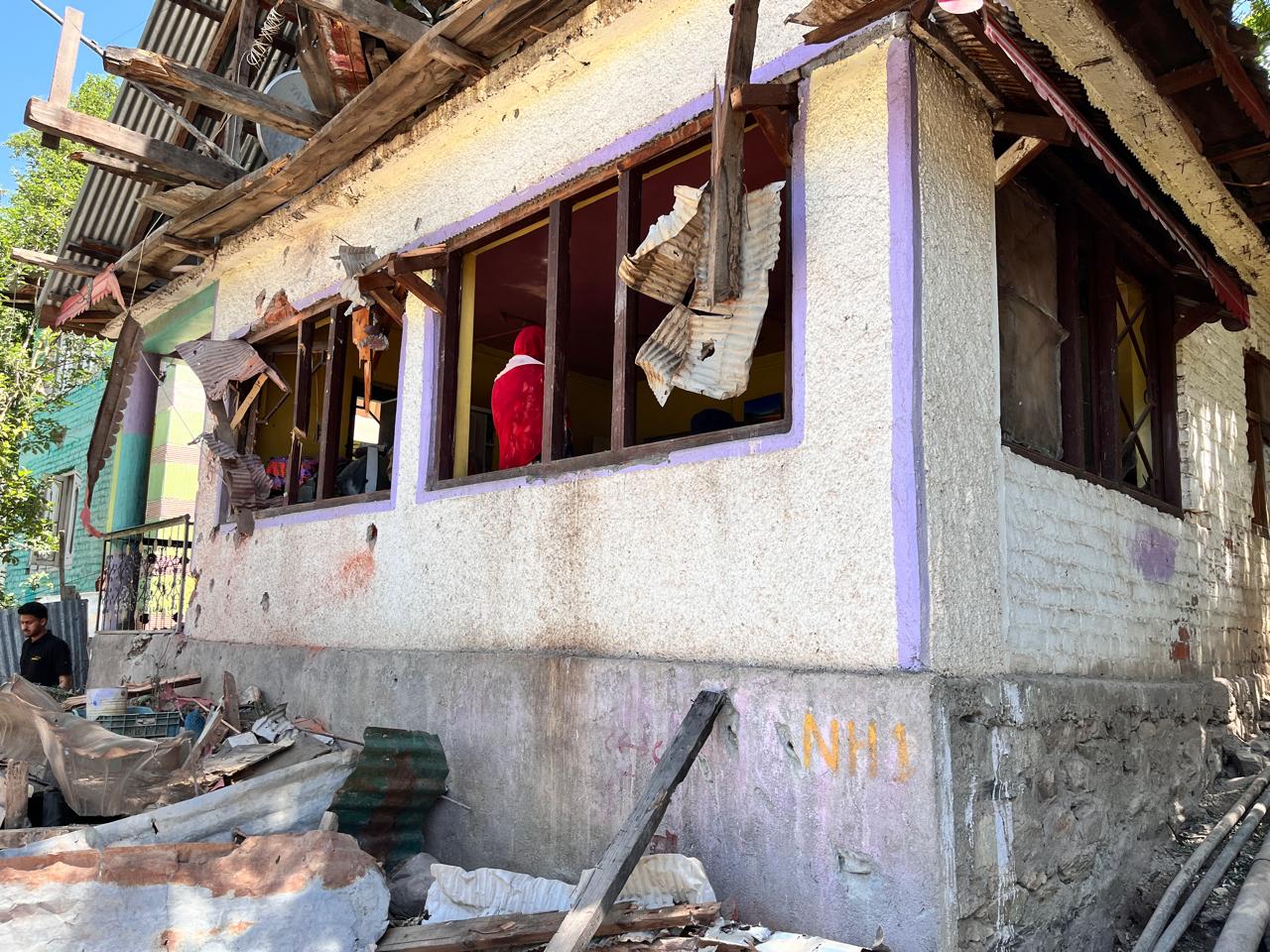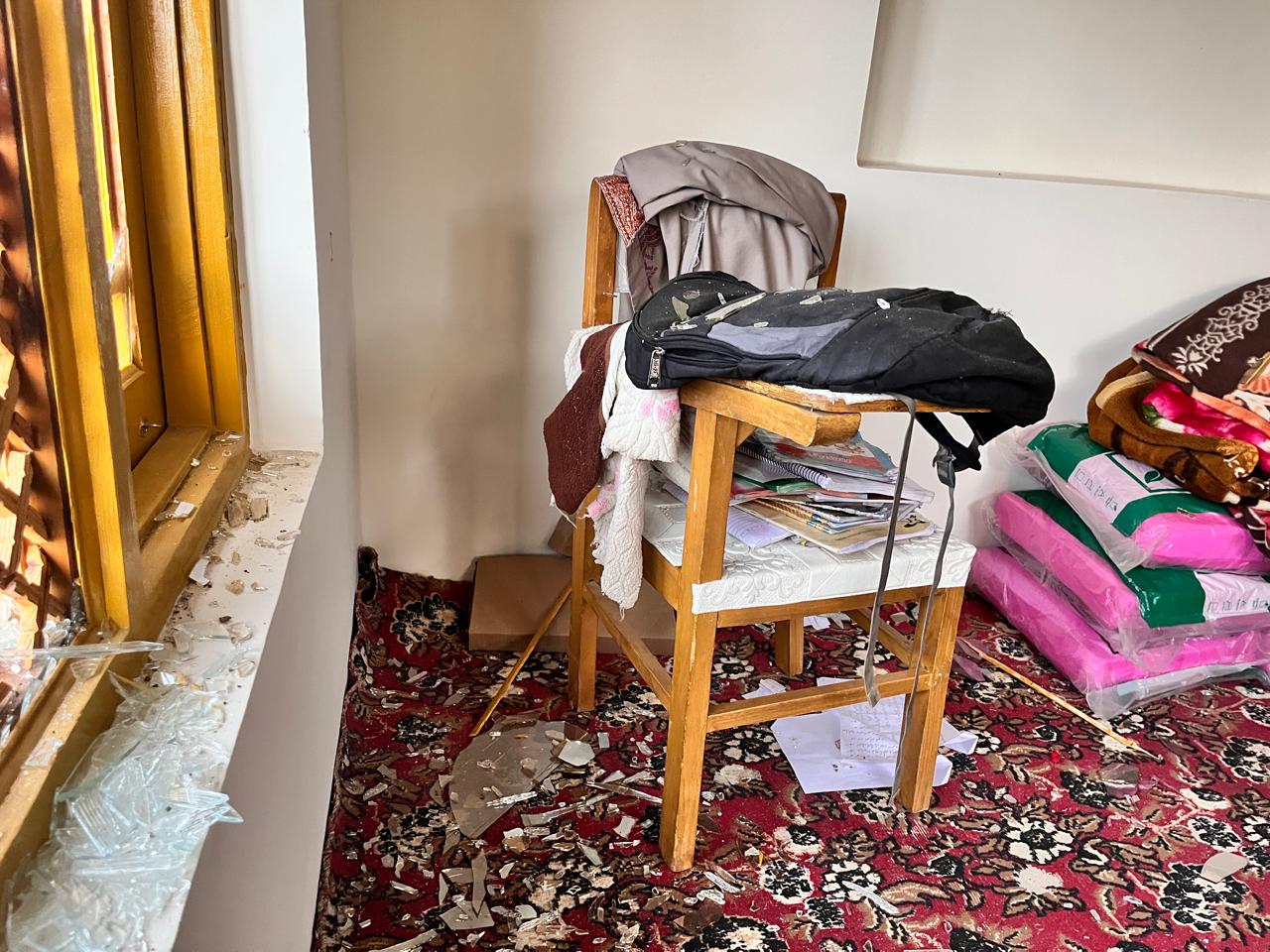'We Just Want Peace': Lives Shattered as India-Pakistan Ceasefire Offers Fragile Hope Along LoC

Arsheed Ahmad, TwoCircles.net
A fragile silence now blankets the villages near the Line of Control (LoC) in Jammu and Kashmir. After days of intense shelling between India and Pakistan, residents are finally breathing a little easier. The ceasefire, which began on the afternoon of May 10, has brought some relief to people who had been living in constant fear.
At Uri's Noupora Slamabad in Baramulla district, Talib Hussain Naik still bears injuries on his back and leg. He remembers the moment the shelling began. “The ceasefire gave us hope. Finally, the shelling stopped. We are alive now. We were shattered,” he says.
The ceasefire came after one of the worst escalations in decades. Reports indicate that around 70 people were killed on both sides. The firing ceased following diplomatic intervention by the United States.
The confrontation escalated after a Pakistan-backed terror attack on April 22 at Baisaran meadow in Pahalgam, a popular tourist destination. It was the deadliest strike on civilians in Jammu and Kashmir in over a decade. The attackers opened fire on a group of tourists — most of them Hindu men.
Responding to the deadly assault, the Indian armed forces carried out precision strikes on the intervening night of May 6 and 7, targeting nine sites in Pakistan and Pakistan-occupied Kashmir. The strikes destroyed terrorist infrastructures and caused significant casualties.
Pakistan responded with aerial attacks and heavy shelling along the LoC.
Naik’s house was struck by a Pakistani shell around 3 a.m. on May 7. “My house was completely destroyed. We only had the clothes we were wearing,” he said. His brothers, Mohd Younis Naik and Feroz-ud-Din Naik, also lost their homes. “Nothing is left - not even a piece of wood,” he added. Two young girls in the family suffered injuries.
The entire border stretch from Jammu to Kupwara witnessed intense shelling. Several houses were damaged and dozens of people were killed.
A Village in Fear
Other border villages also suffered. Mohammad Ashraf from Chowkibal in Kupwara recalls that night vividly. “Around 2 a.m., we heard loud blasts. The children were terrified. I told them it was just thunder so they would not panic.”
By 5 a.m., the shelling ended. Ashraf and his family fled their home, returning only four days later after the ceasefire was declared.
“Thank Allah both countries agreed. It is a big relief. Life is slowly returning to normal,” he said.
Ashraf, who owns a small shop, reopened it for the first time in five days. “People are still afraid. Many have not returned yet,” he said.
He urged the government to step in. “We need bunkers in our village. Other places have them - we need the same,” he said.
In Kera village, Mendhar, Fahmida Akhtar and her children also had to flee. “We stayed with relatives. Our three shops and two homes were destroyed. Even our three buffaloes died.”
She added the children are struggling to concentrate on studies. “Their studies are affected. We want peace; we don’t want conflict.”
Fahmida is grateful that the shelling has stopped. “We are happy with the ceasefire. But we want a normal life,” she said.
[caption id="attachment_452006" align="aligncenter" width="1280"] A school bag and notebooks lie abandoned on a chair inside a home damaged by cross-border shelling in Chowkibal village of Kupwara district.[/caption]
A school bag and notebooks lie abandoned on a chair inside a home damaged by cross-border shelling in Chowkibal village of Kupwara district.[/caption]
A Cycle of Destruction
Villages near the LoC fell silent. Shops shut down. Families fled. Power lines were cut. Schools were closed. For four days, there was no sign of safety.
Some families, like Naik’s, were taken to a temporary shelter in Baramulla. They stayed at the Government Degree College. Now, they have been told to return.
“The government sent us back. But where do we go? There is nothing left,” he said, adding officials visited and promised support - assuring that compensation would be given. Many are still waiting.
Reshma Bano, a resident of Uri, said her house was partially destroyed. “My children cry whenever they hear an ambulance. They think it is a war siren.”
When a shell hit near her home in Bandi, she knew they had to flee. There was no other option. This time was different. On the night of May 9, the power went out. Reshma said it felt as if death was near. She left with her children and whatever she could carry. At that moment, safety was all that mattered.
The Road Ahead
For now, people are thankful that the guns have gone silent. But fear remains. Villagers are uncertain how long this peace will last.
“I opened my shop. But people are still scared. Business is slow,” said Ashraf.
The people want more than temporary peace; they want action. They want bunkers, real protection and the security of knowing they can stay safely in their homes.
“We ask the government to protect us. Even if our homes are gone, at least our lives can be saved,” said Ashraf.
Fahmida echoed the plea. “We just want to live in peace. Our children need safety, not fear,” she said.
Reshma Bano also called for lasting peace. She urged both India and Pakistan to let people live without fear.
Will Peace Hold?
Even after the ceasefire, the Army remains on alert. Some reports suggest minor violations have occurred. People living near the LoC are accustomed to this uncertainty. They know that peace can break at any moment.
Naik has a clear message: “We became homeless during this war. We have asked for shelter. We need help now.”
“Ceasefire should not mean pause and fight again. It should mean end,” he said.
Many villagers are now demanding bunkers as they fear the ceasefire could collapse again; and if it does, they know they will be the ones to suffer most.
